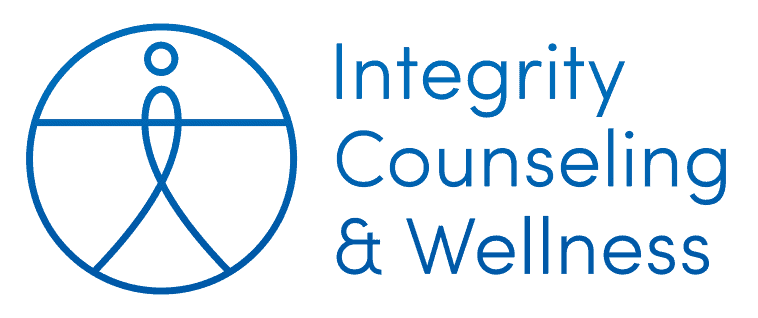“Hooray! 2020 is over! 2021 is going to be so much better!”
— Everyone
First off, Happy New Year from Integrity Counseling. We hope that you are keeping healthy and doing your best each and every day to live a life of balance and care.
New Year’s Resolutions are an admirable tradition, but they can be a double-edged sword. Wielded skillfully and with focus, one can resolve to address a long-imagined passion project, become more physically active, attain a goal, or alter a habit to achieve an intended result. Approached without care, one can create unintended barriers, unrealistic expectations, undue stress, and frame a day within unconscious feelings of being “not enough.”
Although each of us have different lives and ways we choose to live them, here are some common-sense tactics that can help keep one’s New Year’s Resolutions healthy and in check.
SET REASONABLE EXPECTATIONS OF YOURSELF
There is a saying often attributed to 12-step programs: “Expectations are premeditated resentments.” Perhaps this can be adjusted to “Unrealistic expectations can become premeditated resentments.”
Developmental psychologist Jean Piaget noted that young children have difficulty distinguishing between the subjective worlds in their heads and the outer, objective world. According to Piaget, children therefore sometimes believe that their thoughts can directly cause things to happen — for example, thinking angry thoughts about your little brother can cause him to fall down the stairs. Piaget referred to this as magical thinking and suggested that we all outgrow it by around age 7.
Many adults continue to embrace magical thinking. For example, the popularity of such books as The Secret and movements as The Laws of Attraction, which propose that our thoughts attract events into our lives, can in fact set unrealistic expectations of ourselves and others, especially when we don’t get what we want.
The difficult truth is that there is a great responsibility on adults to understand that expecting something to happen will not always happen without good reason and application of effort.
If someone’s New Year’s Resolution is to lose 10 pounds over two months, yet they have made no dietary changes or efforts to exercise, it is reasonable to assume that person will be disappointed in themselves regarding their goal. The expectation has become a resentment, and that goal is now an obstacle to happiness.
To achieve the goal of losing 10 pounds through a reasonable plan of diet and exercise on a weekly basis is not magical thinking, that’s how it’s done! To achieve the goal of making more money, wishing a bag of cash to appear is only going to lead to disappointment. But setting an expectation to make more money through an improved resume, skill-building, or freelance networking can indeed lead to an increase in income.
Resolutions such as losing weight or making more money are achievable through reasonable and consistent application of reasonable plans with adequate time and effort. There is a type of real magic to it — it may be a rather tedious, grown-up magic, but reasonable expectations can indeed reveal new wonders in one’s life.
SET REASONABLE EXPECTATIONS OF OTHERS
If one’s New Year’s Resolution involves other people, once again the name of the game here is to maintain a reasonable expectation of both one’s self as well as the other people involved. The best methods to keep expectations in check are communication and transparency.
While it pays to keep an eye on our own expectations and assumptions, we also have a laundry list of expectations that are heaped upon us. Many of us struggle mightily as we try to fulfill the expectations of others. Expectations placed upon us are often not clearly defined and unexpressed; rather, we make inferences about the expectations people have for us. Non-communicated expectations cannot be met. Expectations from others may be reasonable or unreasonable. When unreasonable expectations are placed upon us, it may be a quick path to feeling burnt-out. Giving too much of ourselves as we strive to meet or exceed expectations may also lead to burn-out. If we are over-zealous in our pursuit of exceeding expectations, then people eventually presume that we will continue to go over and above at each and every opportunity. When we no longer can go the extra mile, or no longer wish to, then everyone is disappointed. It is not difficult to see how expectations can be a root cause of damaged relationships and compassion fatigue! We may set more reasonable expectations of ourselves – and build more satisfying relationships with others- when we talk to people to clarify their expectations. Only with open lines of communication can we be clear about what the expectations are and whether we can reasonably meet them. Sometimes, those setting unreasonable expectations may not even be aware they are putting unfair pressure on themselves or others.
Building positive relationships of all kinds requires the following:
- acknowledging that we all have expectations;
- striving to make expectations more transparent;
- and taking responsibility to communicate our own wants and needs (i.e., our own expectations)
And what better way to develop a resolution with healthy expectations for all involved than to…
FIND AN ACCOUNTABILITY PARTNER
It’s much easier to work towards a goal when you’re part of a team. With an accountability partner, you have another person to help chronicle your successes towards your resolution. And, you’re much less likely to allow yourself to let your partner down than to allow yourself to take shortcuts on your own.
For those looking to increase physical activity, consider asking children or a “pandemic-bubble” neighbor to join you on a walk before work each morning. For those looking to eat healthier, ask your spouse to commit with you to carb-free dinners during the week. Having another person equally committed to your success will help you to achieve your goal.
As COVID-19 still rages, perhaps in-person accountability is not readily available to you. The connectedness of social media platforms, family and friends far and wide, or a specific community group can provide a team of people all committed to similar goals or interests. Accountability networking for a wide variety of goals can provide new opportunities for growth and connection than previously expected.
Remember that expectations, if balanced with effort and realistic plans, can sometimes even be exceeded! A shared achievement of a focused goal can make all involved feel this accomplishment, forging stronger connections that can help reframe the remaining year.
Above all, when it comes to expectations of oneself or others, be S.M.A.R.T. about setting your New Year’s Resolutions.
STAY S.M.A.R.T.
According to the time management firm FranklinCovey, one third of resolutioners don’t make it past the end of January.
A lot of these resolutions fail because they’re not the right resolutions. And a resolution may be wrong for one of three main reasons:
- It’s a resolution created based on what someone else (or society) is telling you to change.
- It’s too vague.
- You don’t have a realistic plan for achieving your resolution.
Your goals should be smart — and S.M.A.R.T. That’s an acronym coined in the journal Management Review in 1981 for specific, measurable, achievable, relevant, and time-bound. It may work for management, but it can also work in setting your resolutions, too.
- Specific. Your resolution should be absolutely clear. “Making a concrete goal is really important rather than just vaguely saying ‘I want to lose weight.’ You want to have a goal: How much weight do you want to lose and at what time interval?” said Katherine L. Milkman, an associate professor of operations information and decisions at the Wharton School of the University of Pennsylvania. “Five pounds in the next two months — that’s going to be more effective.”
- Measurable. This may seem obvious if your goal is a fitness or weight loss related one, but it’s also important if you’re trying to cut back on something, too. If, for example, you want to stop biting your nails, take pictures of your nails over time so you can track your progress in how those nails grow back out, said Jeffrey Gardere, a psychologist and professor at Touro College of Osteopathic Medicine. Logging progress into a journal or making notes on your phone or in an app designed to help you track behaviors can reinforce the progress, no matter what your resolution may be.
- Achievable. This doesn’t mean that you can’t have big stretch goals. But trying to take too big a step too fast can leave you frustrated, or affect other areas of your life to the point that your resolution takes over your life — and both you and your friends and family flail. So, for example, resolving to save enough money to retire in five years when you’re 30 years old is probably not realistic, but saving an extra $100 a month may be. (And if that’s easy, you can slide that number up to an extra $200, $300 or $400 a month).
- Relevant. Is this a goal that really matters to you, and are you making it for the right reasons? “If you do it out of the sense of self-hate or remorse or a strong passion in that moment, it doesn’t usually last long,” said Dr. Michael Bennett, a psychiatrist and co-author of two self-help books. “But if you build up a process where you’re thinking harder about what’s good for you, you’re changing the structure of your life, you’re bringing people into your life who will reinforce that resolution, then I think you have a fighting chance.”
- Time-bound. Like “achievable,” the timeline toward reaching your goal should be realistic, too. That means giving yourself enough time to do it with lots of smaller intermediate goals set up along the way. “Focus on these small wins so you can make gradual progress,” Charles Duhigg, author of “The Power of Habit” and a former New York Times writer, said. “If you’re building a habit, you’re planning for the next decade, not the next couple of months.”
At Integrity Counseling, we believe that goals are worth pursuing when they improve the lives of those involved in a healthy way. Through reasonable expectations of self and others, accountability partners, and SMART resolution management, no goal is truly unachievable, and the journey will be far more rewarding, no matter the outcome.
If you need help with your goals or accountability with your growth, contact us today at (919) 379-5788 or set up an appointment today by email at admin@counselingintegrity.com.

